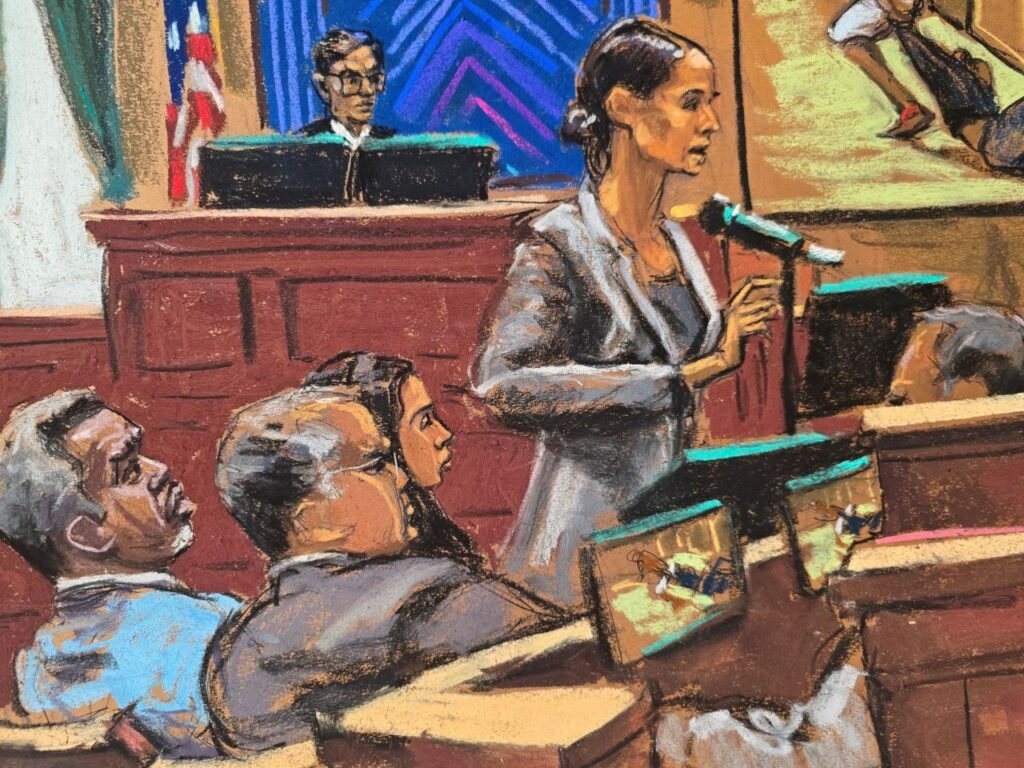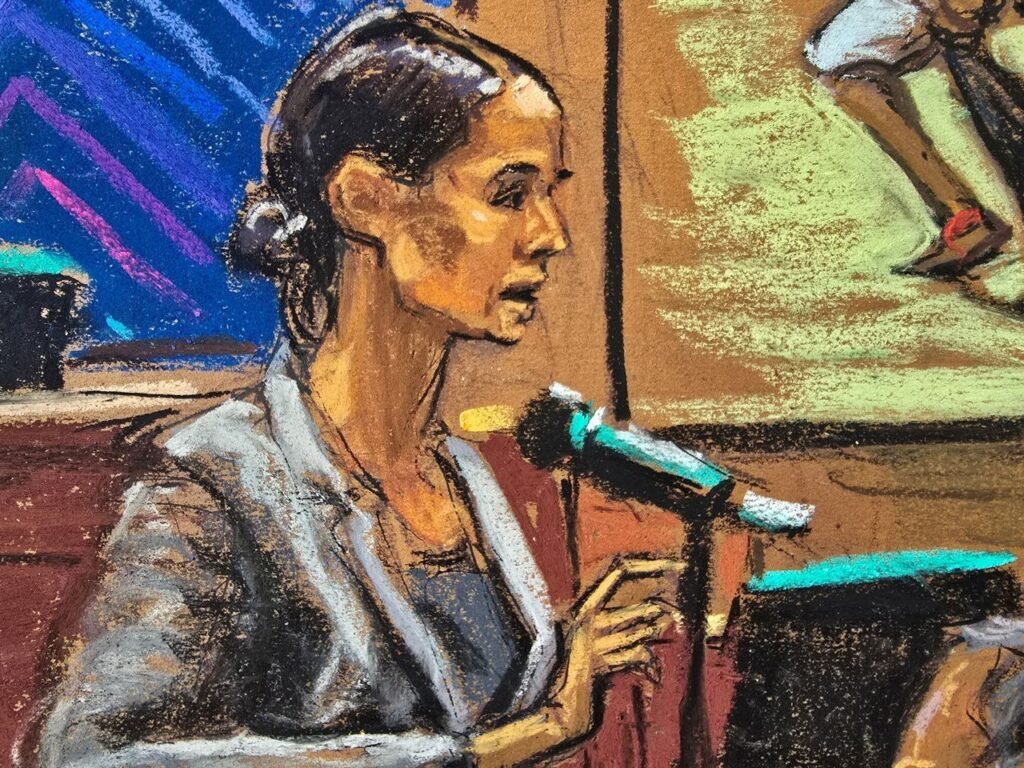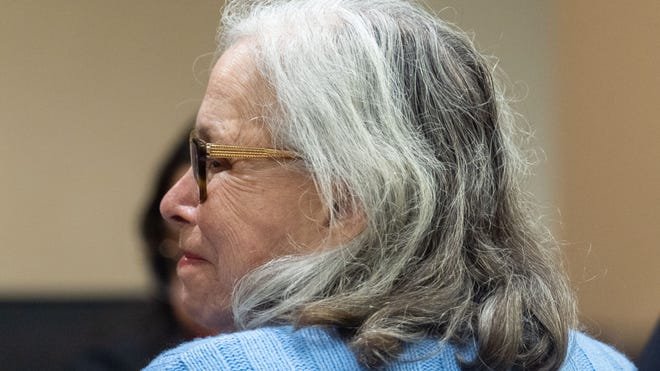
By The General Justice, June 26
The Diddy trial reached a critical juncture on June 26, 2025, with the prosecution’s closing arguments delivered by Assistant U.S. Attorney Christy Slavik in Manhattan’s Southern District Court.
Following six weeks of testimony from 34 witnesses and a contentious charge conference, the prosecution aimed to distill a complex case into a cohesive narrative, framing Sean “Diddy” Combs as the architect of a criminal enterprise under the Racketeer Influenced and Corrupt Organizations Act (RICO).
This analysis examines the legal strategy, evidentiary foundation, and potential challenges of the prosecution’s closing, drawing on live updates and related court developments.The prosecution’s case hinges on 18 U.S.C. § 1962(c), which criminalizes conducting an enterprise’s affairs through a pattern of racketeering activity.
Under RICO, the government must prove four elements: the existence of an enterprise, its impact on interstate commerce, Combs’ knowing participation, and his agreement to commit at least two predicate acts from a list of 35 offenses, such as sex trafficking, drug distribution, and kidnapping. Slavik’s closing emphasized these elements, alleging a criminal enterprise centered on Combs’ businesses and inner circle, with predicate acts spanning sex trafficking, forced labor, and drug distribution.
The decision to drop charges of attempted kidnapping, arson, and aiding and abetting sex trafficking announced earlier in the week reflects a strategic narrowing, aligning with prosecutorial discretion to streamline jury instructions and focus on the core allegations where evidence is strongest.
However, this move risks weakening the narrative of a broad criminal conspiracy, a point the defense may exploit. Slavik’s argument leaned heavily on witness testimony and physical evidence, with key witnesses including ex-girlfriend Cassie Ventura and an alias-protected influencer “Jane” alleging forced sexual acts during “freak off” parties, supported by testimony from assistants and security personnel. The prosecution introduced drugs cocaine, methamphetamine, ketamine, and ecstasy, seized during 2024 raids on Combs’ homes, linking them to these events.
- Donna Adelson Found Guilty on All Counts in Dan Markel Murder Case
- Epstein Files: Survivors Break Silence on Capitol Hill
- Cardi B Assault Trial Verdict — She’s Not The Drama
- Jim Crow Era — Louisiana’s Split Juries Problem and the Limits of Retroactivity
- Grooming Gangs in the UK — A Crisis Re-Exposed in 2025
Additionally, maps demonstrating sex workers crossing state lines provided the interstate commerce nexus required for federal jurisdiction.
Legally, this evidence must meet the “beyond a reasonable doubt” standard. The drug seizures bolster the drug distribution predicate, while Ventura’s and Jane’s accounts support sex trafficking under 18 U.S.C. § 1591, which requires force, fraud, or coercion. However, the defense’s earlier presentation of consensual text messages—such as Jane’s “I always have fun”challenges the coercion element, countered by the prosecution’s allegations of manipulation and threats, leaving a factual dispute for the jury to resolve.
The portrayal of Combs as the “throughline” of a hierarchical enterprise, with lieutenants (security) and foot soldiers (assistants) executing his directives, was a central theme. Financial incentives e.g., Brendan Paul’s $100,000 and Kristina Khorram’s $600,000 were cited as tools to ensure loyalty.
This aligns with RICO’s focus on organizational structure, but the lack of direct testimony from co-conspirators. since the defense called no witnesses leaves the prosecution reliant on circumstantial evidence and cross-examination gains. The interstate commerce hook, sex workers moving across state lines addresses a potential jurisdictional weakness, with even minimal interstate effects sufficing under Wickard v. Filburn (1942) and subsequent RICO cases.
Yet, the defense could argue this is a stretch, given the primary activities occurred within private settings.The charge conference, described as “jam-packed” with 200 objections, underscores the trial’s complexity.
Judge Arun Subramanian’s decision to streamline instructions removing attempted crimes aims to clarify the jury’s task, but it may limit the predicate act count. RICO requires at least two acts; the prosecution lists seven (drug distribution, kidnapping, arson, bribery, sex trafficking, forced labor, cover-ups), though the dropped charges reduce the pool. If jurors disagree on specific acts, a hung jury becomes a risk.

The schedule adjustment prosecution closing today, defense closing tomorrow at 9 a.m. ET allows the government a rebuttal, a procedural advantage under Federal Rule of Criminal Procedure 29.1, given their burden to prove guilt.
The defense, resting after a 20-minute presentation on June 24, 2025, opted not to call Combs, a calculated move according to former prosecutor Mitchell Epner, as testifying risks cross-examination pitfalls. Combs’ demeanor calm but occasionally glancing at jurors, prompting a judicial warning adds to the tension.
The defense’s reliance on cross-examination and exhibits (e.g., text messages) shifts the burden back to the prosecution, but it leaves gaps in rebutting the enterprise narrative. This strategic silence could either protect Combs or expose weaknesses if the jury finds the prosecution’s evidence persuasive.The trial occurs amid over 70 civil lawsuits since November 2023, alleging similar abuses, which, though inadmissible, amplify public scrutiny.
The recent leak of sealed evidence to TMZ and The Daily Mail in mid-June 2025 further complicates impartiality, though Judge Subramanian’s chastisement mitigated prejudice.
These external pressures underscore the high stakes, with a conviction on racketeering carrying a life sentence and an acquittal potentially triggering a media firestorm.In conclusion, the prosecution’s closing arguments present a compelling, if streamlined, RICO case, leveraging witness testimony, physical evidence, and legal technicalities like interstate commerce.
However, the dropped charges and defense’s consent narrative pose significant hurdles. The jury’s deliberation beginning after defense closings and jury instructions on June 27, will hinge on resolving factual disputes over coercion and enterprise scope.
For legal scholars, this case tests RICO’s adaptability to celebrity-driven enterprises, balancing broad statutory reach with evidentiary rigor. As updates unfold, the interplay of law, evidence, and public narrative will define this landmark trial’s legacy
Author

Latest entries
 Donna Adelson Trial2025-09-05Donna Adelson Found Guilty on All Counts in Dan Markel Murder Case
Donna Adelson Trial2025-09-05Donna Adelson Found Guilty on All Counts in Dan Markel Murder Case True Crime2025-09-03Epstein Files: Survivors Break Silence on Capitol Hill
True Crime2025-09-03Epstein Files: Survivors Break Silence on Capitol Hill US2025-09-03Cardi B Assault Trial Verdict — She’s Not The Drama
US2025-09-03Cardi B Assault Trial Verdict — She’s Not The Drama US2025-08-30Jim Crow Era — Louisiana’s Split Juries Problem and the Limits of Retroactivity
US2025-08-30Jim Crow Era — Louisiana’s Split Juries Problem and the Limits of Retroactivity



